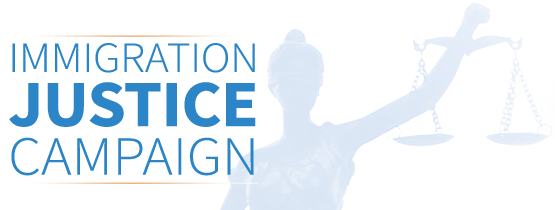Sue Pyne
I was thrown into the deep end, and came out changed. I saw first-hand the incredible impact that a pro bono lawyer like me can have in securing a fair process for the most vulnerable immigrants. The Dilley Pro Bono Project made that possible.
On a beautiful Sunday evening in Dilley, Texas, I met the Dilley Pro Bono Project’s on-the-ground (OTG) staff and the other volunteers who would be my colleagues for the week: five from a national law firm, one from an Oregon immigration law firm, three from New York non-profits, and two Catholic nuns. We came together to provide free legal services to asylum-seeking women and children detained in the privately-operated South Texas Family Residential Center (STFRC).
I arrived in Dilley having watched CLE videos and read relevant materials, but without immigration law experience. Orientation triggered the nervous realization that we were about to be entrusted with tremendous responsibility. Volunteers would rotate to help lead large group charlas (information sessions), prepare individual clients for their credible fear interviews (CFIs), and sometimes accompany clients to those interviews. Case notes would support the preparation of an appeal in the event of a negative CFI outcome.
Thrown into the deep end after orientation, all volunteers found themselves able to swim. As the only non-Spanish speaker, I could not lead charlas, but I could do administrative tasks until clients were ready for CFI preparation. One non-lawyer volunteer led many charlas, occasionally served as an interpreter for me, and offered an ear and emotional support to clients and other volunteers, but was less comfortable leading CFI preparation. We all did what we could, and volunteers consulted on others’ difficult cases.
Now dressed in solid-color prison-issue shirts, most client families came from Honduras, Guatemala, or El Salvador. A few traveled from places like Romania, Democratic Republic of Congo, Cuba, and Uganda; none came from Mexico. Security at the STFRC was very tight, including a strict prohibition of cell phones and cameras.
While the first day left me feeling physically and emotionally exhausted, adrenaline and the comfort of a little experience quickly kicked in and carried me through the week. A volunteer day started before 8am and often continued until nearly 8pm. While many skipped lunch on the first day, the value of a mid-day visit to a wonderful little taco truck became apparent.
My first client told a profoundly sad story of gang extortion, tortured neighbors, and spousal instructions to flee if ever he failed to return from work. She maintained a posture of firm resolve, silent tears acknowledging the obvious implication of her presence in Texas. An asylum officer might ask to speak with her daughter, so the mother would soon need to end her pattern of feigning calm and avoiding her daughter’s questions about why Daddy was not with them.
I heard many other equally sad stories as well. Gang extortion, recently murdered family, threats against crime witnesses, kidnap, rape, domestic violence, and fear for safety of children were such common themes that I came to recognize the related vocabulary before my Spanish interpreters filled me in on the widely varied details. Of course, profoundly sad stories are not a sufficient basis for asylum, so volunteers probed to draw out other relevant details and discuss their importance in the context of an asylum claim.
As a mono-lingual corporate lawyer, I certainly do not represent the typical Dilley volunteer. I learned enough about relevant immigration law issues for the work in Dilley, but language was a bigger challenge. Volunteer phone interpreters made my work possible. All the families with whom I worked were released in the weeks following my visit because they were able to demonstrate a credible fear of returning to their countries of origin. They will now continue the long and difficult asylum process outside the confines of a detention center – as is the case with almost all of the families who receive assistance from the Dilley Pro Bono Project.
After a week working well beyond my comfort zone, I left feeling inspired by the brave and determined mothers, and the hardworking and compassionate OTG staff. I am grateful for the opportunity to make a small contribution to a very impressive effort to secure the release of all who seek help from the Dilley Pro Bono Project.
Sue Pyne’s legal career focused on business transactions, and corporate and securities law in Silicon Valley. Since retiring in 2016, she stays active in a variety of pro bono legal and other volunteer activities: managing volunteer interpreters supporting the travel ban “airport lawyers,” connecting volunteer lawyers with needs at DACA clinics, screening citizenship clinic clients, and serving as a third grade language arts aide.

